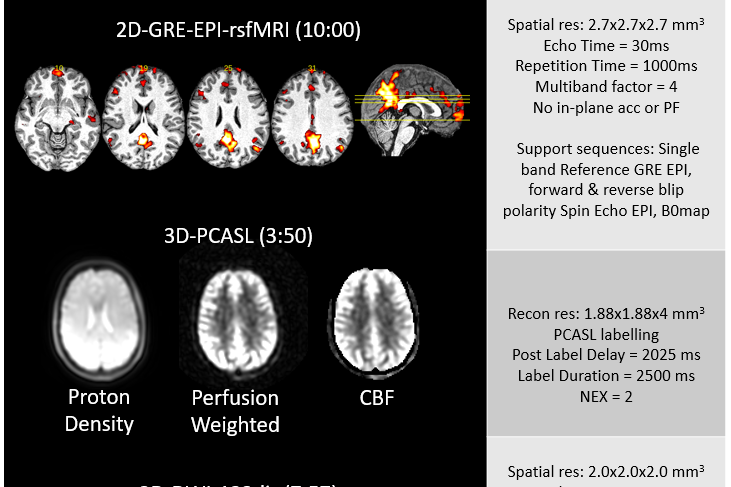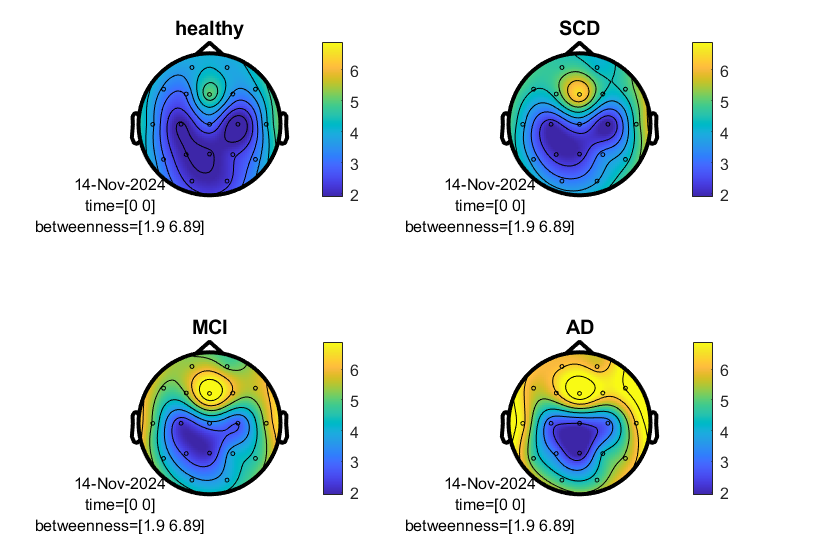New study reveals subtle brain network changes in early Alzheimer’s
A new study from the European research project PREDICTOM shows that even small memory problems can be linked to early changes in the brain, changes that can be measured with a simple brain scan.
Spatial distribution of betweenness centrality for each group in the Theta-band
Published in the Journal of Dementia and Alzheimer’s Disease, the study is one of the first to apply large-scale brain network analysis across the full Alzheimer’s spectrum using the publicly available CAUEEG dataset. This dataset includes EEG recordings from over 1,100 individuals ranging from healthy controls to those with subjective cognitive decline, mild cognitive impairment and Alzheimer’s disease.
We found that even people with very subtle memory concerns, who don’t yet show signs of cognitive impairment, already have measurable changes in how different parts of the brain communicate. This is promising for earlier detection and for monitoring disease progression over time
says Dr. Ioulietta Lazarou, lead author and researcher at the Centre for Research and Technology Hellas (CERTH).
Ioulietta Lazarou
Brain signals tell a story
The researchers used a brain scan method called EEG, which measures tiny electrical signals in the brain. It's the same technology hospitals often use to check for epilepsy or sleep problems.
By looking at how these signals move between different brain areas, the study found clear differences. People with Alzheimer’s showed slower brain activity and reduced communication between brain regions. Even those with only mild memory problems had early changes, especially in areas related to memory and attention.
These early changes in brain network activity could help us build better tools for screening and diagnosis, ones that are both accessible and scalable
Why this matters
These findings suggest that EEG could help doctors spot signs of Alzheimer’s earlier, long before traditional tools pick them up. Since EEG is affordable, fast and widely available, it could be a practical option for clinics, and even home care, in the future.
Our results support the idea that EEG could be a low-cost way to screen people who may be at risk
The study is part of a growing push across Europe to improve early detection of dementia using digital tools.
About the study
What: A new study exploring early brain changes in Alzheimer’s using EEG brain scans.
Who: Led by Dr. Ioulietta Lazarou and researchers at the Centre for Research and Technology Hellas (CERTH), Greece.
How: Brain activity from over 1,100 people was analysed, spanning from healthy individuals to those with Alzheimer’s disease.
Why: To explore a low-cost, accessible method for earlier detection of dementia.
Read the full study and access to our data set upon request





